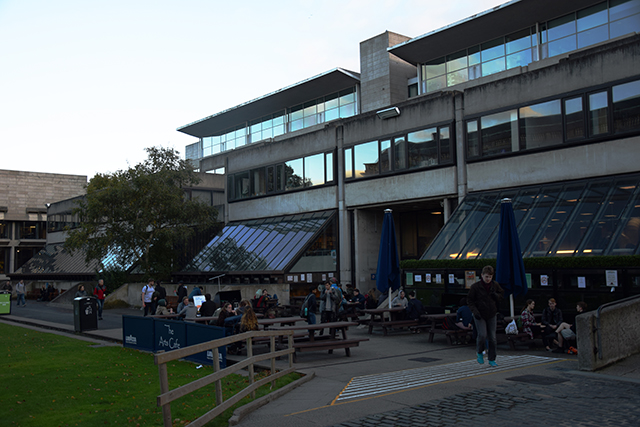The Strike 4 Repeal campaign has begun organising and seeking student support on university campuses across the country, as an activist behind the Trinity campaign group hailed the “overwhelmingly positive responses” from students in the college since setting up a stall in the Arts Building on Tuesday February 7.
Strike 4 Repeal aims to stage a “non-traditional” strike on March 8 if the group’s demand for a referendum on the 8th Amendment has not been met. Áine Palmer, head of Dublin University Gender Equality Society (DUGES) and a lead organiser in the Trinity division of the campaign, said that close to 300 people signed pledges to take part in the strike within 2 days of the stand being set up. A similar stand is being staffed in the Hamilton to complement the one in the Arts Building until Tuesday 14 February.
The pledge states that “the undersigned students and staff of Trinity College Dublin, pledge our support for the Strike 4 Repeal, the nationwide direct action advocating for the repeal of the 8th amendment,” if a referendum has not been called by that date.
The pledge further states that “the repeal of the 8th amendment is undeniably a student issue,” referring to the costs involved with travelling abroad for a termination, which they say disproportionately affect the young and the poor.
The campaign was launched with a video in January, threatening the government with a “national strike” if a referendum is not called. While Strike 4 Repeal material states that what is in fact being sought is a “non-traditional strike,” with people using annual leave days and refusing to do domestic work, the movement is nonetheless seeking a large turnout.
In Trinity, Palmer said that plans are underway for an event around midday on March 8, which falls in the middle of International Women’s Week.
Palmer also said that a discussion item will be brought up at Trinity College Dublin Students’ Union (TCDSU) Council meeting next Tuesday, hopefully leading to a motion in support of the action. “Our main target right now is making sure the SU is behind it, and that the student body as a whole, or representatives of the students are behind the strike, then after that we’ll be talking to the college,” she said. “Obviously the SU can’t make everyone strike, everyone still has their own freedom of belief and expression, but I think it’s important that they say they support it as a body.”
Kieran McNulty, President of TCDSU, said that it was indeed a discussion item as opposed to a motion. The item was intended to be brought before the Council meeting, though further details are yet to emerge.
Palmer, when asked whether she foresaw students taking the entire day off college to protest, said that “for some people that’s going to be far more feasible than others, and certainly it depends on how successful we are up until then.” It will be easier for Arts and Business students to take time off class than their colleagues in Science courses, where labs are compulsory, she said.
However, she added that “we would like for people to start having that conversation with their lecturers and their teachers — ‘hey, I really want to take part, is there any way you can facilitate us?’ I figure if there’s 20 people in the class, and 15 of them want to go on strike, then that’s a conversation that needs to happen.”
Aside from student-centric demonstrations, Palmer said that there were plans to organise something for staff members. “We’ve got word from the Facilities & Estates that the best time for that would be between 1-2pm, as it’s the staff’s lunch break, so they don’t necessarily have to put their job in jeopardy, so organising something like that would be on the cards as well.”
Meanwhile, efforts are underway to stage similar acts of protest in universities and colleges nationwide. A national “Students Strike 4 Repeal” Facebook group has members from across the country, and similar organisational efforts are underway in Cork, Galway, and other Dublin universities.
Laura Feeney, president of the Feminist Society in Maynooth University, said that meetings have been held to begin organizing a series events throughout what the society are terming “Repeal Week”.
Feeney said that it is hoped that at noon on the day of the strike, students taking part will announce in their lectures that they are leaving class as part of the campaign, before congregating in front of the John Hume building in the centre of Maynooth’s campus to hear speeches from student and staff representatives, and then march to the college library.
Additional reporting by Sam Cox.







